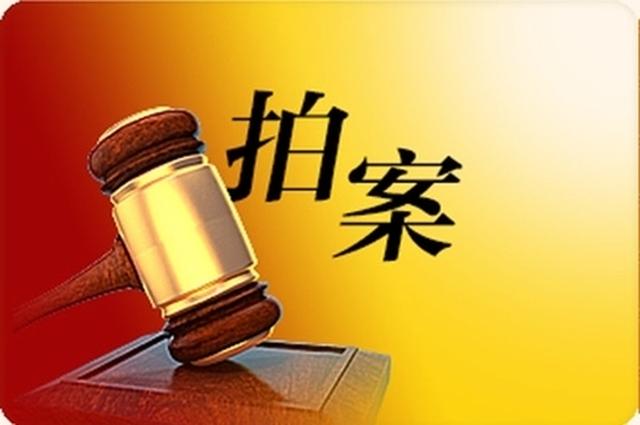Multiple children inherit the inheritance of the inheritance of the book!How do "print the will" be determined?Judge Jinan judged this way
Author:Jinan Times Time:2022.09.15

In order to conform to the changes in the times and echo the needs of social needs, the Civil Code adds the form of "printing will". Recently, the Jinan Huaiyin Court tried to inherit the case in this way and made legal identification of the "printing will".
Retrospective
Jin Mou and Zhai's original couple relationship, the two sides had a child after marriage, namely the gold armor, and the two sides divorced. Li Mou was the second wife of Jin. The two sides registered and married in 1996. They jointly raised Li Mou and the daughter -in -law of the ex -husband, and then gave birth to a son Jin Yi. Li and Jin divorced in 2006. Kim's parents died early and died in 2020. Due to the issue of the distribution of Jin, Li, Xiao Wang, and Jin Jia used Jin B as the defendant to a lawsuit to the Huaiyin Court, requesting the division to register a property under the name of Jin.
Jin Ya argued that Li had already divorced Jin and did not have the qualifications of the plaintiff. Jin has clearly denied the inheritance of Xiao Wang in the printed will, and determined the share of the house involved in the case. Jin Yi submitted a printing will made by Jin on May 5, 2020. The will: "... now all the property in my name is allocated, which is my own voluntary. First, the property rights and rental income are located in a place in Huaiyin District. A inheritance of A, 50%of the property rights and rental income from the second son Jin Y inherited. Second, since the divorce with Li, Xiao Wang has no contact with me, and it takes me to raise and educate her. Any property. Third, all other property in my name is inherited by the second son Jin Y. Special declaration: The testor herself is clear here. The above will be voluntarily made for myself, which is the expression of my own true meaning. No other relatives or any third party can interfere with or oppose the execution of the will for any reason. One of B, a witness to the witnesses, has the same effect. "Jin and the witness Di and Wu Mou signed and fingerprints under each page of will.
When the Huaiyin Court investigated the printed testament witnesses Di and Wu Mou, the two of them called the will of Jinmou's true meaning that Jin Mou was sober when he decided his will.
Li, Xiao Wang, and Jin Jia did not recognize the authenticity of the will. After applying for Jin B, Huaiyin Court entrusted a judicial appraisal center to identify the signature and handprints of the "Kim" in the above will. The later appraisal center issued an appraisal opinion, and the signatures and handprints in the will in the will are written and left by Jin.
Referee
Comprehensive submitting evidence of the two parties, the Huaiyin Court believes that in accordance with Article 15 of the "Supreme People's Court on the Application of the" Several Provisions of the People's Republic of China> Play ", the effectiveness of the case involved in printing will apply Regulations of Article 1,136. The case was identified by the case, and the will of the will indeed signs and handprints for Jin himself. Therefore, the printed will meets the form of the formation of the will. At the same time, the two witnesses also expressed the true expression of the will of the will. Li, Xiao Wang, and Jinjia advocated that the will is invalid, but did not prove it with sufficient valid evidence, so they did not support the three of them.
Based on this, Huaiyin Court ruled: The houses located somewhere in Huaiyin District belong to Jinjia and Golden B (Gold Armor accounts for 50%of the share and 50%of the Golden B). A litigation request. After the sentence, Li, Xiao Wang, and Golden Armor appealed. The Jinan Intermediate People's Court made a verdict: rejected the appeal and maintained the original judgment.
Judge
Li Yongjing, a judge of Huaiyin Court who tried the case, introduced that with the development of the times, the will produced by printing has long appeared in the trial practice. Printing the will is a new, independent will of will with the form of will in the inheritance law, which has the characteristics of convenient, fast, and clear, but it is also easy to forge change. Relative to the self -book will, the printing will have strong mechanicality, retaining the personality traces of the inheritance, and the positiveness of the true meaning is often more difficult. Therefore, the law specifies more stringent forms for printing the will.
Because the printing text is more likely to forge or replace it than the handwriting written by the pen and ink. The formal requirements for the signature are more stringent than the self -book will and the book will. According to the Civil Code, the print will includes the following essential elements: First, there are two or more witnesses witnessed. It should be noted that for the qualifications of the witness, Article 1,140 of the Civil Code stipulates that the following personnel cannot be a witness as a will: (1) People with no civil behavior, people restricted civilian behavior, and other people, and other other capabilities People who do not have witnesses; (2) the heirs, the victim; Therefore, when choosing a testimony, printing a will should avoid invalid the will due to the problem of witness qualifications. The second is that the will and witnesses should sign on each page of the will and notice next year, month, and day.
New Yellow River Client Reporter: Chen Tongtong Correspondent: He Jianghao Editor: Sun Feifei
- END -
Public Legal Service Center of Shenshan Special Cooperation Zone Unveiled

The unveiling ceremony.Recently, the Shenzhen Shenshan Special Cooperation Zone Pu...
Implement the protection of the rule of law to protect the business environment

In order to further optimize the business environment and create a strong atmosphe...